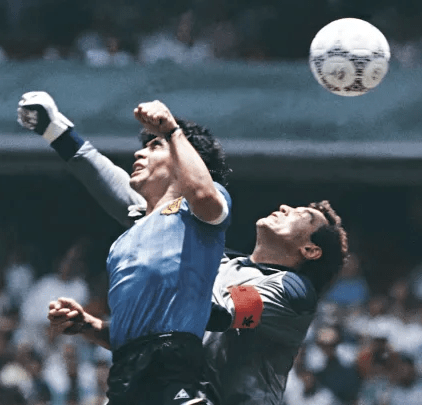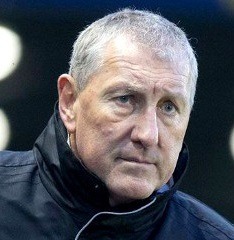First published on The Suffolk Sports Forum on July 9th 2010

While some have labelled it as the most spectacular event on the planet, I personally did not find myself fully invested in this World Cup. The customary excitement surrounding England’s chances of winning the trophy, with Rooney anticipated to clinch the Golden Boot and John Terry expected to improve his behaviour, failed to materialise.
What prevented my engagement with it? Likely a mixture of factors, primarily a sense of familiarity and repetition. Consider a few examples of past letdowns for England. The first instance dates back to 1977, when England failed to qualify for the World Cup in Argentina, while Scotland did. Though I remember little of the tournament itself, I recall the vibrant crowds and the paper littered across the pitch. Additionally, Star Wars had just been released in cinemas. Unfortunately for me, Ninky was not Scottish at that time, or I would have had ample material for mickey taking.
Amidst the fervour of the ’82 competition, there was a resounding battle cry unlike any other time, this time? Hopeful that elusive victory (in my lifetime) was within reach, England emerged victorious in their group with a remarkable record (P3 W3), only to be eliminated in the second round after drawing both their matches. Meanwhile, Scotland once again made an appearance, but were swiftly knocked out of the competition. As a teenager, I eagerly anticipated the 1986 World Cup in Mexico, staying up late into the night and waking up early to catch every game. Our defeat to Portugal and draw with Morocco meant that we needed a convincing win against Poland to progress. Despite the late kick-off at 1am, I managed to stay awake, either preoccupied with other activities or having set an alarm to ensure I didn’t miss a moment of the game.
Things went well as Lineker scored three goals in the first half, securing the win and allowing the team to advance to the second stage. Unfortunately, they faced Argentina in the quarterfinals and despite having the opportunity to win, Maradona scored both with a controversial and then an impressive goal. It was frustrating that none of our defenders took him out of the game. Ultimately, we didn’t perform well enough and were knocked out of the tournament.

On the bright side, at least Scotland finished last in their group. In 1990, Bobby’s team suffered a defeat in the semi-finals at the hands of the Germans, masking a subpar performance throughout the campaign. Our matches against the Irish and Dutch resulted in draws, and we only managed a lacklustre 1-0 victory over Egypt thanks to a scrappy goal by Mark Wright. We barely made it past Belgium in the second round with an extra time goal from Platty, and luck was on our side when we faced Cameroon.
After making it to the semi-finals, we were considered the favourites to avenge our previous loss to the Germans. However, our hopes were dashed as we suffered a defeat two hours later. The night was filled with intense emotions as Waddle and Pearce missed crucial penalties, Parker scored an own goal, and Gazza’s tears added to the disappointment. Do I not like 1994. Graham Taylor couldn’t lead us to the US, so we had to wait until France 1998, where the inept Hoddle oversaw another letdown. Our team made it through the group stage before encountering the Argentinians once again. Unfortunately, we lost on penalties after Becks received a red card. This time, Batty was at fault.

In 2002, we ventured to the far east where early morning kick offs called for beer and bacon rolls at Felixstowe Labour club. Our group included Argentina and we sought revenge. Beckham’s penalty, although not deserved, secured a 1-0 victory and our qualification over them. We advanced to the second round and defeated Denmark, but our quarterfinal match against Brazil ended in disappointment with Ronaldinho’s lob. It was another early exit for us.
Moving on to 2006, we travelled to Germany with Sven and the WAGs. However, our stay was brief. Despite topping our group and securing a narrow victory against Ecuador, we suffered yet another penalty shootout defeat to Portugal. Our experiences in the World Cup have a common thread – we usually make it out of the group stages if we qualify, but ultimately succumb to a stronger team due to a lapse in judgement or penalties.
Let’s have a look 1986 World Cup squad, besides being unsuccessful on the field, it seems they carried their failure into their future managerial endeavours. Out of the group of 22 players, 14 pursued managerial careers, but their tenures were mostly brief. Peter Shilton, known for his exceptional goalkeeping skills, had an unremarkable stint as a manager and only lasted three years at Plymouth Argyle. During his time as manager, he nearly destroyed the club and caused resentment among fans. Even though Shilton managed to stay longer than most, the majority of these managers barely made it to the year mark. Glenn Roeder’s assistant at Watford, Kenny Sansom, was deemed useless, while Mark Hateley was dismissed after leading Hull City to the verge of non-league football in just over a season. Similarly, Chris Waddle’s stint at Burnley culminated in the team narrowly avoiding relegation.
After spending time at Doncaster and briefly bothering Letchworth Town, Kerry Dixon went on to manage both Hitchin Town and Dunstable. Ray Wilkins was initially happy to receive an offer from Fulham after being fired by QPR, but unfortunately, history repeated itself and he was once again let go after just a year. Some of the managers in this unimpressive group were even fired before they had finished moving in and unpacking their winter clothes. John Barnes, for example, only lasted eight months at Celtic before a 3-1 Scottish Cup defeat to Caledonian Thistle sealed his fate.
Terry Butcher was fired from Sunderland just three months into the season, despite successfully settling them in 22nd place after a year at no success at Coventry. He retreated to Scotland to manage a hotel named Obscurity before attempting management again at Motherwell, Sydney FC, and Brentford, all with little to no success. On the other hand, Terry Fenwick persevered for 12 games at Northampton Town before finally being told he was incompetent, and he has since steered clear of management. The curse of the hand of God seems never-ending.
